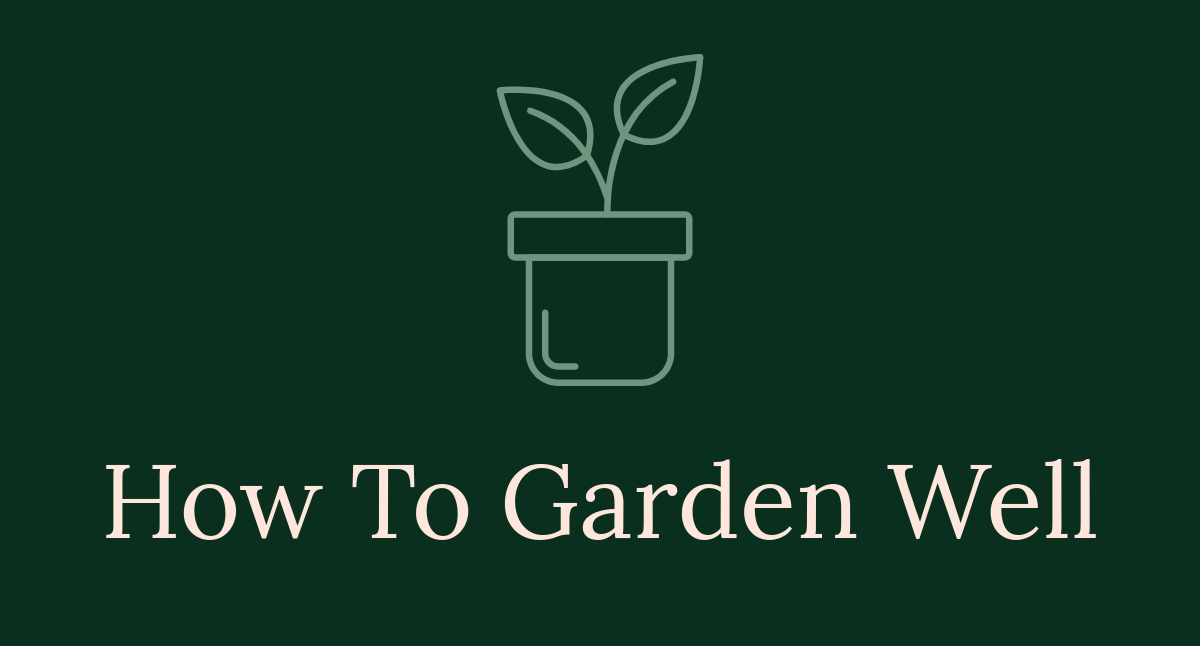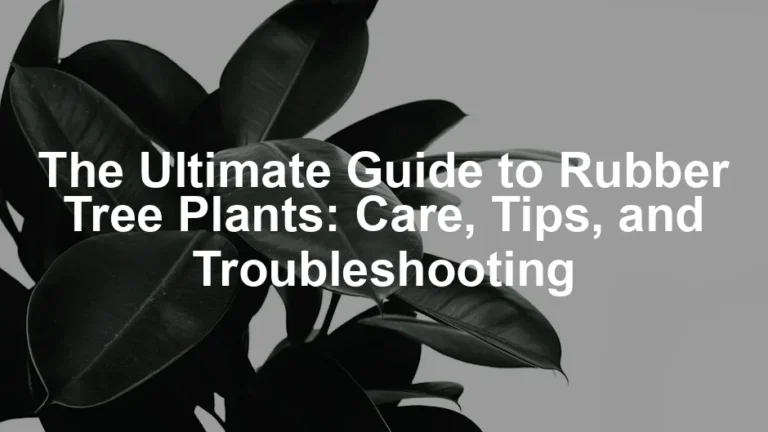
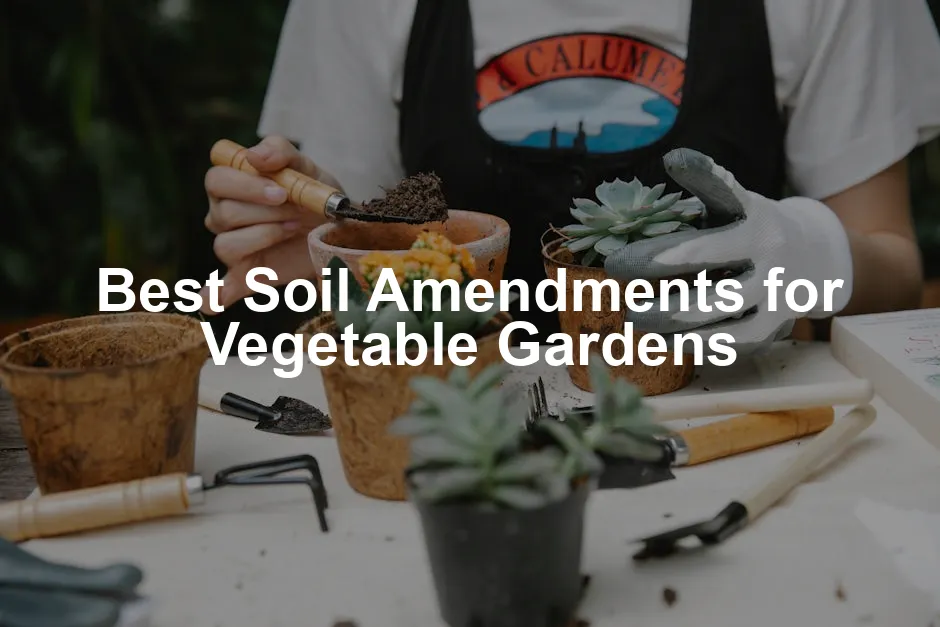
Best Soil Amendments for Vegetable Gardens
Introduction
In this article, we’ll explore the best soil amendments for vegetable gardens that can help you cultivate a thriving and productive garden. Whether you have sandy, clay, or loamy soil, the right amendments can transform your soil structure, enhance nutrient availability, and improve moisture retention. Picture this: You’re daydreaming about a lush garden filled with vibrant veggies, but your soil is more like a brick than a buffet. Fear not! Soil amendments are here to rescue you. These magical ingredients can turn your gardening woes into glorious growth. From compost to minerals, each amendment plays a unique role in enriching your garden. So, grab your gardening gloves and let’s dig into the best options to elevate your soil game!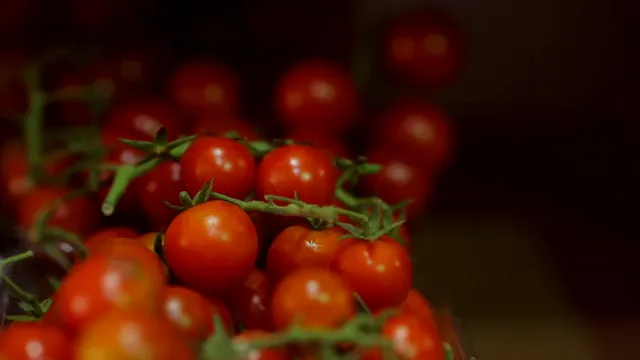
Why Soil Amendments Are Essential
Understanding soil composition is key to successful gardening. Soil is made up of sand, silt, clay, and organic matter. Each component plays a vital role in plant health. Sand provides drainage, silt holds moisture, clay offers stability, and organic matter supplies nutrients. However, not all soil is created equal. Most gardeners struggle with sandy or clay soils. Sandy soil drains too quickly, leaving plants thirsty. Clay soil, on the other hand, retains too much moisture, suffocating roots. This is where soil amendments come into play. Adding organic matter, such as compost, improves soil structure. It enhances aeration, making it easier for roots to breathe. And let’s be real; plants get cranky when their roots can’t breathe. Compost also boosts nutrient content, providing essential elements for robust growth. But that’s not all! Soil amendments increase microbial activity. Healthy microbes break down organic matter, releasing nutrients over time. This means fewer synthetic fertilizers are needed. You’ll have happy plants and a happy Earth! Now, let’s not forget about moisture retention. Amendments like leaf mold or peat moss improve water-holding capacity. This means fewer trips to the garden hose! Your plants will thank you for it. In summary, soil amendments are essential for transforming subpar soil into a nutrient-rich powerhouse. They improve aeration, drainage, and microbial health. Plus, they take your garden from “meh” to magnificent! So, are you ready to give your soil the makeover it deserves?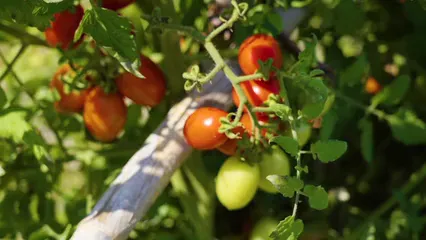
Types of Soil Amendments
Organic Amendments
Compost
Compost is decomposed organic material. It’s made from kitchen scraps, garden waste, and yard debris. This magical mix transforms into a nutrient-rich soil amendment. The benefits of compost are plentiful! It helps improve soil structure, making it crumbly and easy to work with. This is especially helpful for clay soils that can become compacted. Compost also boosts the nutrient content of your soil, providing essential elements for plant growth. Think of it as a multivitamin for your garden! When applying compost, timing is everything. Aim to add a two to three-inch layer in spring before planting. You can also mix it into your existing soil or use it as a top dressing. If you’re feeling adventurous, add some compost during the growing season to keep your plants happy. Just remember, more is not always better—too much can lead to nutrient overload. So, balance is key!Manure
Manure is a classic soil amendment with various types available. You can choose from cow, chicken, horse, or rabbit manure. Each type has unique benefits. For instance, chicken manure is high in nitrogen, making it a great choice for leafy greens. The nutritional value of manure is significant. It adds organic matter and essential nutrients to the soil. However, fresh manure can be risky; it may contain pathogens. Always use well-aged or composted manure. This ensures it’s safe and effective. When applying manure, the timing is crucial. Aim to add it in the fall or early spring. This allows nutrients to break down and become available for your plants. Spread a layer about one to two inches thick, mixing it well into the soil. Keep in mind that using too much can lead to an imbalance, affecting plant growth. And while we’re at it, if you want to skip the hassle of sourcing manure, consider investing in an Worm Composting Kit. It’s an eco-friendly way to create rich compost right at home while keeping your kitchen scraps out of the landfill!
Worm Castings
Worm castings, often called “black gold,” are nutrient-rich droppings from composting worms. These tiny treasures are packed with beneficial microorganisms and nutrients like nitrogen, phosphorus, and potassium. They work wonders in improving soil health. The benefits of worm castings include enhanced soil health and improved plant growth. They help aerate the soil, allowing roots to breathe and access water more easily. Plus, these castings promote beneficial microbial activity, making your garden a thriving ecosystem. To incorporate worm castings into your garden, sprinkle a thin layer over the soil surface. You can also mix them into planting holes when transplanting. A little goes a long way—about 10% of your soil volume is ideal. Your plants will thank you for this nutrient boost!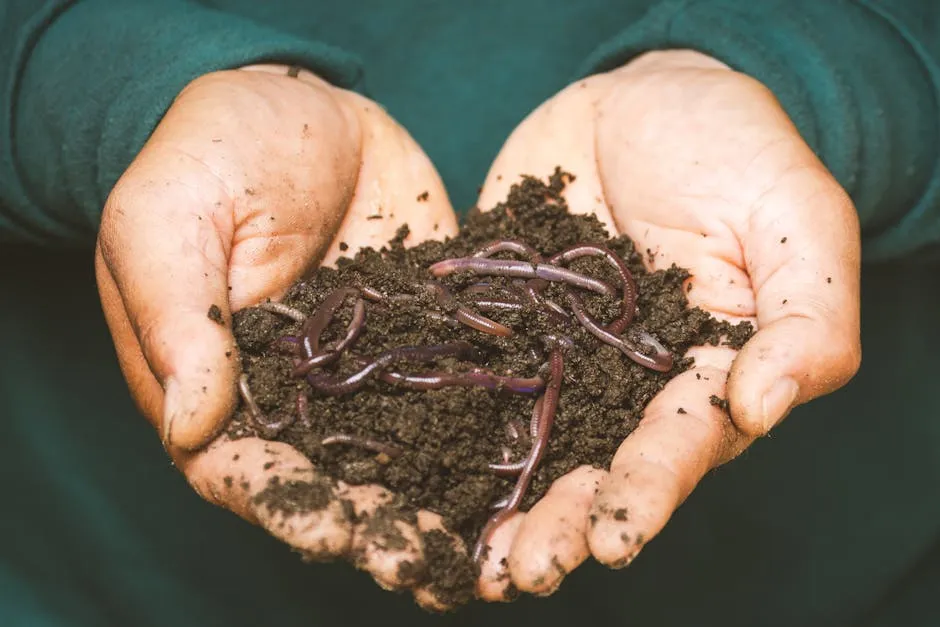
Mineral Amendments
Greensand
Greensand is a mineral-rich soil amendment derived from ancient ocean deposits. It contains potassium, iron, and magnesium, which are vital for plant growth. This amendment is particularly beneficial for clay soils, improving their structure and moisture retention. The benefits of greensand include enhanced soil texture and increased nutrient availability. It works wonders for heavy soils by helping to loosen them, making it easier for roots to establish. Plus, it retains moisture, ensuring your plants stay hydrated during dry spells. To use greensand, apply a layer of about one to two inches during the spring before planting. Mix it well into your soil to maximize its effectiveness. This simple step can transform your garden’s productivity!Gypsum
Gypsum is a mineral composed of calcium sulfate. It’s a fantastic soil amendment for improving soil structure, particularly in clay soils. Gypsum helps break up compacted soil, allowing roots to grow deeper and access nutrients. The benefits of gypsum include improved drainage and reduced erosion. It also adds calcium and sulfur to the soil, essential for healthy plant growth. Unlike lime, it won’t raise soil pH, making it suitable for maintaining neutral soils. When applying gypsum, broadcast a layer of about one to two inches over the soil surface. Mix it into the top few inches of soil, ideally in the spring or fall. This will prepare your garden for a successful growing season.Other Effective Amendments
Biochar
Biochar is a form of charcoal created through pyrolysis, which is the slow burning of organic matter. This process captures carbon, making it a sustainable amendment with long-lasting benefits. Biochar improves soil structure and promotes beneficial microbial life. The benefits of biochar include enhanced nutrient retention and improved water infiltration. It acts like a sponge, holding moisture while allowing excess water to drain away. This helps create a balanced environment for your plants. To apply biochar, mix it into your soil before planting. Aim for a ratio of about 10% biochar to 90% soil. This addition will set your garden up for success!Leaf Mold
Leaf mold is made from decomposed leaves. It’s a fantastic soil amendment that improves moisture retention and soil structure. Creating leaf mold is simple: just pile up leaves and allow them to decompose over time. The benefits of leaf mold include enhanced soil aeration and improved drainage. It also provides a slow release of nutrients, making it an excellent addition to your garden. To use leaf mold, mix it into the top few inches of soil or use it as mulch around plants. Aim for a layer of one to two inches. This will keep your soil healthy and your plants thriving! These soil amendments, both organic and mineral-based, can transform your garden into a flourishing oasis. With the right mix of nutrients and structure, your vegetable garden will thrive like never before!
For more information on how to enrich your vegetable garden, check out this guide on best organic fertilizers for vegetable gardens in small spaces.
How to Amend Your Soil
Amending your soil is a crucial step for a thriving vegetable garden. It’s like giving your plants a luxurious spa day—only without the cucumbers on their eyes. Let’s break it down into a simple, step-by-step guide that even your grandma could follow.
Step-by-Step Guide
1. Soil Testing
Before you start tossing amendments into your garden like confetti, it’s essential to know what you’re working with. Soil testing is your best friend here. It reveals nutrient levels and pH balance. You wouldn’t want to serve your plants a dish they can’t digest, right? Testing helps you figure out what your soil lacks. Most local extension services offer testing kits. Just follow the instructions, send in your sample, and wait for the results. It’s like waiting for a surprise party—exciting and nerve-wracking! Want to test your soil at home? Grab a Soil Test Kit for Home Garden. It’s a simple way to get all the info you need for your gardening success!
2. Choosing the Right Amendments
Now that you know what your soil needs, it’s time to choose the right amendments. This is where the fun begins! Depending on your soil type and the needs of your veggies, you might opt for compost, aged manure, or mineral amendments like greensand or gypsum. Clay soils benefit from compost to improve drainage, while sandy soils need organic matter to retain moisture. Think of it as a matchmaking service for your garden; you want to pair the right amendments with your soil’s personality! For a boost of nutrients, consider adding organic fertilizer. It’s a great way to ensure your plants get the nutrition they need to thrive!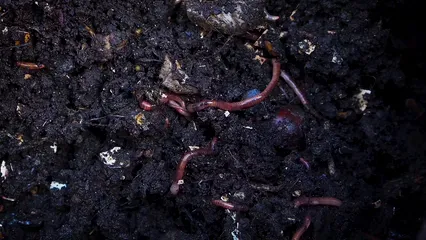
3. Application Timing
Timing is everything in gardening. The best times to amend your soil are in the fall or early spring. In the fall, you can add amendments to let them break down over the winter. This way, they’re ready to rock and roll come spring planting time. If you’re in a pinch between crops, you can also sneak in some amendments then. Just make sure to give your soil a little love every now and then—your plants will appreciate it!
4. Incorporation Techniques
Once you’ve chosen your amendments and the timing is right, it’s time to incorporate them into your soil. This step is crucial for ensuring your plants can access the nutrients. Use a garden fork or tiller to mix the amendments into the top 6-8 inches of soil. If you’re using compost or aged manure, aim for a 2-3 inch layer spread evenly. Remember, we’re not building a concrete wall here; we want a fluffy, well-aerated mix. For no-till gardeners, spreading amendments on the surface and letting rain or snow work them in can also be effective. In summary, amending your soil is a straightforward yet transformative process. With proper soil testing, thoughtful selection of amendments, and timely application, you’ll create a nutrient-rich environment that supports healthy, vibrant vegetables. Now, go out there and give your garden the TLC it deserves!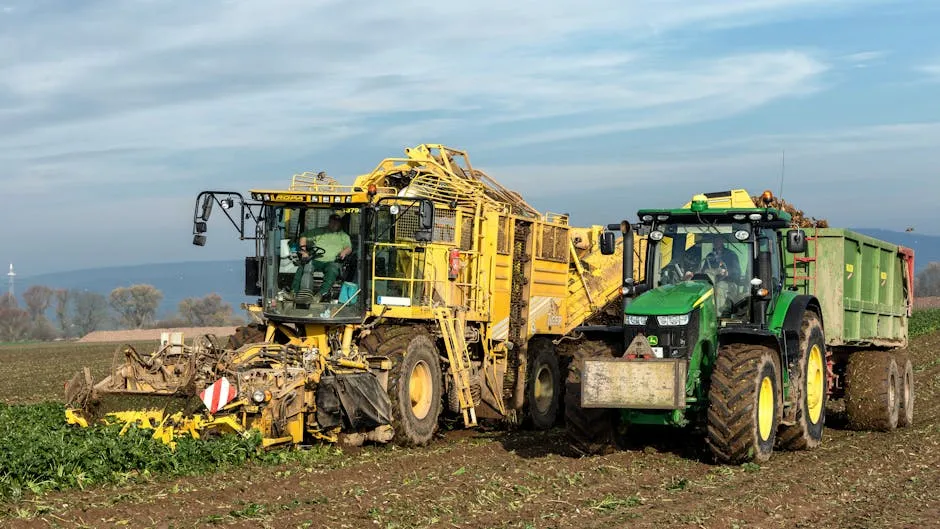
Conclusion
Using the right soil amendments is crucial for a flourishing vegetable garden. Think of soil amendments as the secret sauce for your plants, enhancing their growth and overall health. When you improve soil health, you unlock the potential for larger yields and more vibrant produce. So, why settle for mediocre when you can aim for magnificent? The right amendments can transform hard, unyielding soil into a nutrient-rich haven for your vegetables. Compost, manure, and other organic materials not only enrich the soil but also boost microbial activity. Happy microbes mean happy plants! Don’t be afraid to experiment with different amendments. Each garden has its unique conditions, so try a mix that suits your soil type. Maybe your sandy soil will love some leaf mold, while clay soil might thrive with gypsum. Remember, gardening is all about learning and adapting. Dive into this adventure and watch your vegetable garden thrive like never before! And speaking of adventure, if you’re looking to enhance your gardening experience, consider a garden cart. It makes transporting supplies a breeze!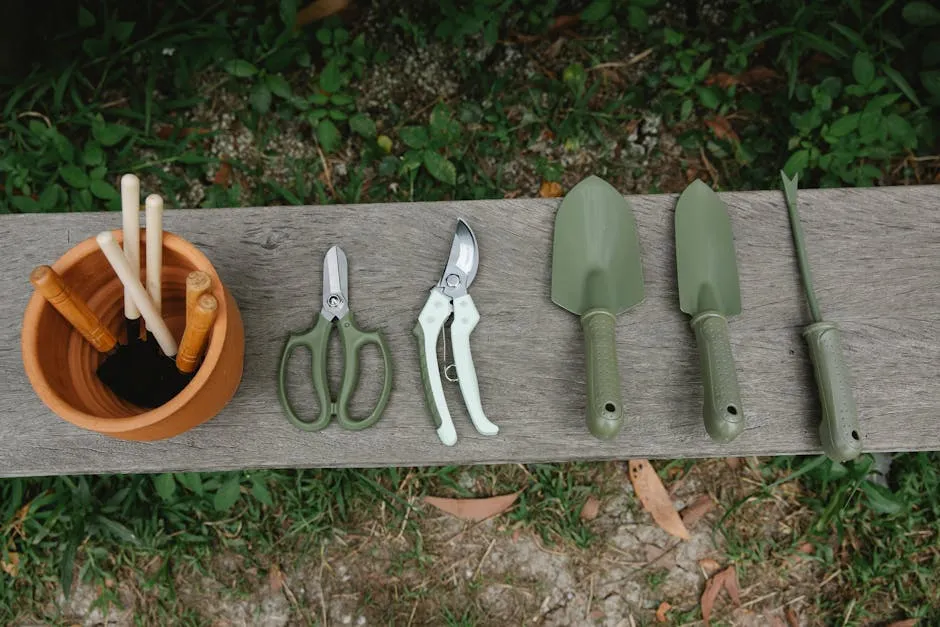
FAQs
What are soil amendments?
Soil amendments are materials added to improve soil quality. They enhance soil structure, aeration, drainage, and nutrient levels. Think of them as a health supplement for your garden. Just like we need vitamins, our plants require essential nutrients for optimal growth. By enriching the soil, you create a thriving environment for vegetables to flourish. This boosts their ability to absorb water and nutrients, ultimately leading to a robust harvest.
How often should I amend my garden soil?
The frequency of soil amendments depends on your plants’ needs and soil conditions. Generally, it’s advisable to amend your soil at least once a year. Early spring is ideal, as it prepares the soil for planting. However, if you notice your plants looking stressed or if soil tests indicate deficiencies, don’t hesitate to amend sooner. Keep an eye out for signs of nutrient depletion, like yellowing leaves or stunted growth. Remember, gardening is all about tuning into your plants’ needs!
Can I use store-bought compost?
Using store-bought compost can be a double-edged sword. On the bright side, it’s convenient and often rich in nutrients. However, caution is essential. Some commercial compost may contain herbicides or contaminants detrimental to your garden. Always check the source and opt for reputable brands. Homemade compost is the gold standard, allowing you to control the ingredients. But if time is tight, quality store-bought compost can still give your garden a nice boost.
Are there any amendments I should avoid?
Not all amendments are created equal. Fresh manure, for example, can be risky. It may harbor pathogens harmful to plants and humans. Stick to well-aged or composted manure to avoid these issues. Additionally, avoid using sawdust from treated wood, as it can introduce harmful chemicals into your garden. Keep an eye out for synthetic fertilizers that may disrupt soil health over time. Stick to natural, organic options when possible; your plants will thank you!
All images from Pexels
